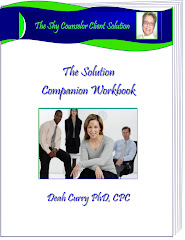In marketing a private healing arts practice, high pressure sales tactics that work in some retail advertising are generally considered sleazy, such as:
- creating false urgency that stimulates the greed factor -- i.e.: the buy now or lose tactic
- purporting a false limited availability -- i.e., the this fee good for the first 5 people today only tactic
- emotional manipulation of Maslow needs -- i.e.: the become more sexy, have money raining on you tactic
- over promised results --i.e., cousin to the above, the you too can become an Olympic star tactic
- celebrity association -- i.e., the trained by Tony Robbins, interviewed by Oprah, worked with Andrew Weil tactic
- bait and switch -- i.e., the freebies that amount to more sales pitch / less info of value tactic
Let's start with some reasonable assumptions about our ideal clients (regardless of who those are for you). They have a pain or a problem that is adversely impacting their daily life, they don't like that impact, their attempts to resolve it have failed, it's getting worse or spreading into other areas of life and relationships, and they want are ready to do anything to stop it.
(If your picture of your ideal client doesn't address their pain or problem in this way, it's time to go back to square one.)
These clients don't need to be convinced they have a problem. They are all too aware of it. They don't have to be persuaded to pay for the help that will end the problem. They are already willing and ready to do so.
So, what do these clients need to hear from our marketing? They need:
- to feel that you see and understand their pain -- show that by talking about it
- to feel warmth and caring from you -- don't say you're warm and caring, demonstrate that by your language
- to feel a connection with you -- talking to them about them creates this
- to start to trust you -- talking about what in your own life gives you empathy with them shows this
- to believe there is hope for change -- provide reassurance that you will do your best to help

![Reblog this post [with Zemanta]](http://img.zemanta.com/reblog_e.png?x-id=af747389-347c-4ba0-af93-2c8775990ff7)












No comments:
Post a Comment